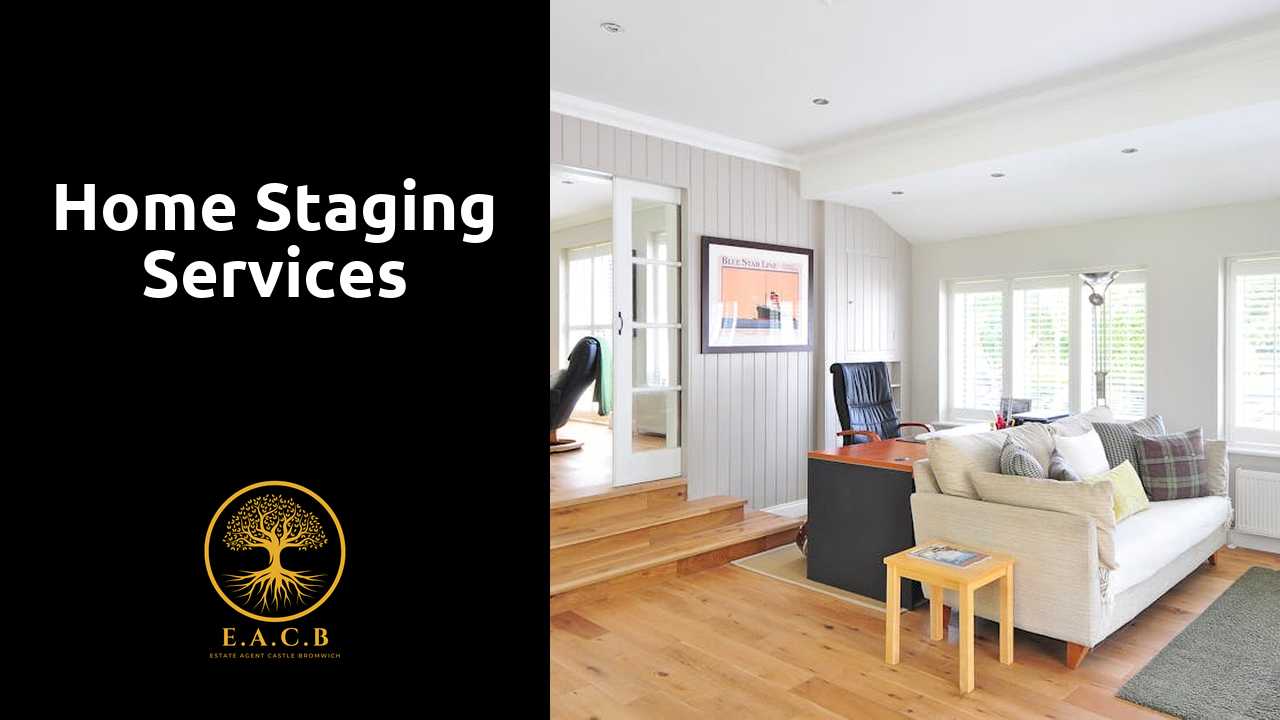
The Role of Certification in Home Staging
Certification in home staging plays a significant role in establishing credibility and expertise within the industry. Several institutions offer programmes that not only provide training in design principles but also focus on marketing and business management. These courses often culminate in certifications that can enhance a stager's portfolio and appeal to potential clients. In a competitive market like Home Staging Services Banners Gate, Birmingham, having recognised qualifications can set a professional apart from others who may have less formal training.
Moreover, certification can influence a home stager's earning potential. While hands-on experience is invaluable, formal qualifications often lead to higher pay rates, especially in regions where potential clients prioritise trained professionals. Knowledge gained from accredited courses can also expand a stager's skill set, allowing them to offer more comprehensive services, ultimately enhancing their marketability. As the demand for home staging continues to grow, professionals equipped with certifications may find themselves in a more advantageous position in terms of both employment opportunities and income.
How Qualifications Affect Pay Rates
Qualifications can significantly influence the pay rates of home stagers in the UK. Stagers with formal training or certifications often command higher fees due to their expertise and credibility. Professional organisation memberships can further enhance a stager's profile, leading to increased client trust and willingness to pay a premium for their services. This is particularly relevant in competitive markets, where clients seek assurance that their investment in staging will yield optimal results.
Experience also plays a crucial role in determining salary levels. Stagers with a robust portfolio and extensive hands-on experience typically attract higher rates than newcomers to the industry. This correlation is evident in regions like Home Staging Services Banners Gate, Birmingham, where established stagers can leverage their reputation and client testimonials to negotiate better compensation. As the demand for effective staging continues to grow, the value placed on qualified and experienced professionals is likely to rise accordingly.
Contract Work vs. Employed Positions
The home staging industry offers various employment models, with contractors and employed positions being the most common. Contractors typically enjoy the flexibility to choose projects that align with their skills and interests. This independence often leads to higher earning potential as they can negotiate their rates based on the specific requirements of each job. For instance, established home stagers might attract clients from reputable real estate agencies, such as those seeking Home Staging Services Banners Gate, Birmingham.
On the other hand, employed positions tend to provide more stability and predictability in income. A full-time role often includes benefits such as paid leave and pension contributions, which can be attractive for those seeking financial security. However, the pay for employed stagers may be lower compared to what successful contractors can achieve. Ultimately, the choice between contract work and employed positions depends on personal preferences regarding risk, independence, and work-life balance within the home staging market.
Pros and Cons of Each Payment Model
Contract work in home staging often offers flexibility and the potential for higher earnings. Stagers can choose their projects, which allows them to specialise in particular niches or upscale properties. This freedom can lead to a varied work experience, as each project may present unique challenges and opportunities. However, contract positions may also lack the financial security that comes with a steady, salaried job, leaving stagers vulnerable during slower seasons.
On the other hand, employed positions within established firms tend to provide more stability in terms of regular income and benefits. Employees may receive a consistent salary and access to resources that enhance their work efficiency. Yet, these roles may restrict creative freedom and limit the range of projects a stager can take on. For those looking to establish a career in the field of home staging, considering options such as "Home Staging Services Banners Gate, Birmingham" can help clarify the best pathway suited to individual preferences and circumstances.
Seasonal Trends in Home Staging Employment
Home staging employment often experiences seasonal fluctuations, reflecting the broader real estate market. During warmer months, particularly spring and early summer, there tends to be an uptick in property sales. Estate agents and homeowners are more likely to invest in home staging services to enhance the appeal of their properties. This surge in demand can lead to increased opportunities and potentially higher pay rates for stagers during this peak period. Conversely, in the colder months, particularly just before and after the festive season, the market often slows down. As a result, fewer staging jobs become available, which can constrain income for professionals in this field.
Market demand heavily influences pay rates in home staging, with fluctuations corresponding to economic conditions and property sale trends. Areas with active real estate markets, such as Banners Gate in Birmingham, generally offer more lucrative opportunities for stagers. However, during periods of economic uncertainty or downturns in housing sales, the demand for home staging services can decrease. The ability of stagers to adapt to these trends, including diversifying their offerings or targeting different market segments, can significantly impact their earnings throughout the year.
How Market Demand Influences Pay
The demand for home staging services often fluctuates based on various market conditions. In regions like Banners Gate, Birmingham, housing market trends significantly impact the need for staging professionals. During periods of high property sales, home stagers may find themselves busier than usual, resulting in increased pay rates due to heightened competition for their services. Conversely, when the market slows, the demand for staging can diminish, leading to lower rates and fewer job opportunities.
Seasonal variations also play a crucial role in determining pay rates for home stagers. Typically, spring and summer see a rise in property listings, prompting a surge in demand for home staging services. As potential buyers become more active during these months, stagers in Banners Gate may experience an uptick in business, allowing for higher fees. In contrast, autumn and winter may see a decline in demand, which can subsequently affect income stability for those working in this field.
FAQS
What is the average salary for home stagers in the UK?
The average salary for home stagers in the UK typically ranges from £25,000 to £50,000 per year, depending on experience, location, and the scale of the projects they undertake.
Do home stagers need specific qualifications?
While formal qualifications are not mandatory, having certifications in interior design or home staging can enhance credibility and may positively influence pay rates.
How does contract work differ from employed positions for home stagers?
Contract work often offers more flexibility and the potential for higher pay per project, while employed positions may provide stability and benefits such as holiday pay and pensions.
Are there seasonal trends affecting home staging pay rates?
Yes, demand for home staging tends to peak during certain seasons, particularly in spring and summer, which can lead to fluctuations in pay rates and available work.
What factors influence the pay of home stagers in the UK?
Pay for home stagers is influenced by several factors, including level of experience, geographical location, the complexity of projects, and market demand at any given time.


